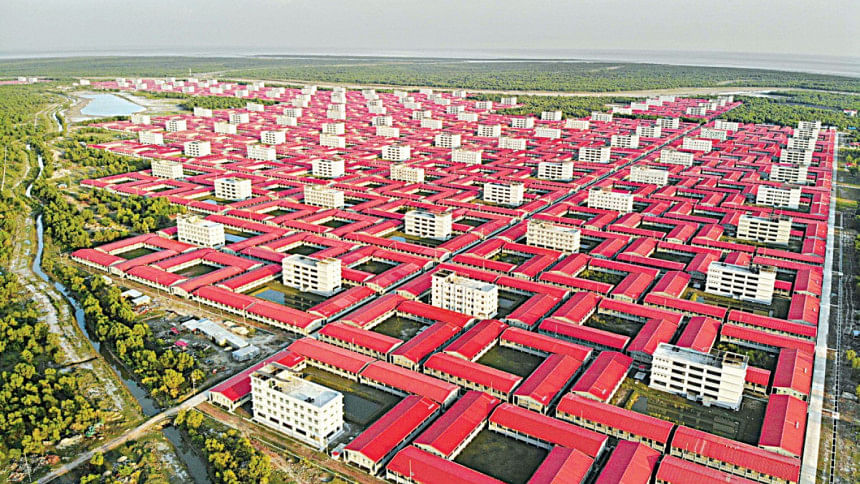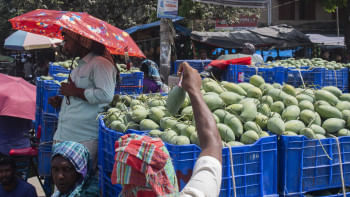No disagreement, only few recommendations on Bhasan Char from UN team: Shahriar Alam

State Minister for Foreign Affairs M Shahriar Alam today said Bhasan Char is now a settled issue and hoped that international agencies will get engaged, taking responsibility of Rohingyas in Bhasan Char, the way they are doing in Cox's Bazar Rohingya camps.
"Bhasan Char isn't an issue now. It's resolved," he said, mentioning that the UN team and diplomats who have visited Bhasan Char did not raise any "disagreement" but there are a few recommendations.
As of now, the government of Bangladesh has relocated over 18,500 Rohingyas to Bhasan Char in several phases out of a planned relocation of 100,000 Rohingyas.
"We're managing their basic humanitarian needs from our own exchequer -- given that the UN is yet to commence their operation at the island," said the state minister while addressing a webinar as the chief guest.
Bangladesh Institute of International and Strategic Studies (BIISS) organised the webinar on "The Rohingya Crisis: Response of the International Community and the Repatriation Process".
He said Bangladesh is happy over the role of some friendly countries regarding the Rohingya issue but cannot express satisfaction over the position of other friendly countries.
"UN is talking about it repeatedly but nothing effective is happening," Shahriar said, adding that some countries are not spending much time on repatriating Rohingyas.
Bangladesh also spent over USD 350 million from its own budget to develop Bhasan Char with better infrastructures and amenities to relocate a part of Rohingyas from the over-congested and disaster-prone camps in Cox's Bazar.
REPATRIATION REMAINS PRIORITY
"We fervently call upon the international community to engage deeply with Myanmar in a meaningful way to ensure the creation of a conducive environment in Rakhine and find a lasting solution for the unfortunate community," he said.
Shahriar said key nations in the region and ASEAN countries with diverse direct leverage over Myanmar have added responsibility in building confidence among the Rohingya and ensure peace and stability of the region.
That will be the most important service for an ethnic minority, the Rohingya – seriously facing the threat of extinction due to "ethnic cleansing", as the UN has termed, he said.
"The repatriation of all displaced people to Myanmar remains a compelling priority for Bangladesh. The displaced Rohingyas are also desperate to return home with safety and dignity at the earliest possible time," he said.
The outcomes and experiences of bilateral diplomatic efforts of working with Myanmar on the Rohingya issue clearly suggest that Bangladesh alone cannot solve the crisis, said the state minister.
Given the gravity of the crisis of over a million Rohingyas and the mindset of the Myanmar authorities, he said the international community must not shy away from their responsibility to resolve the crisis and relieve Bangladesh from the burden that Myanmar has imposed upon it.
BIISS Director General Major General Md Emdad Ul Bari chaired the webinar and delivered the welcome remarks.

 For all latest news, follow The Daily Star's Google News channel.
For all latest news, follow The Daily Star's Google News channel. 



Comments